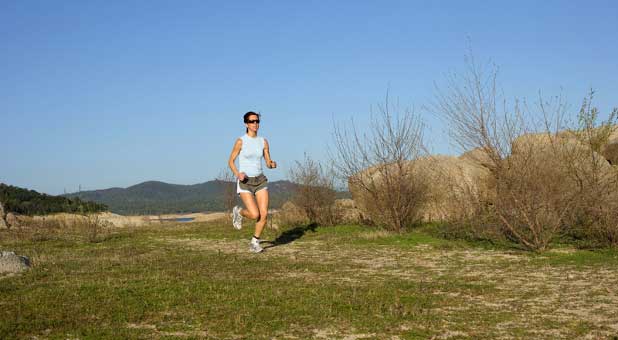Have you heard about the 10-day fast allowing only cayenne, lemon and maple syrup? Close your ears.
Such celebrity “detox diets,” touted to shed the body of toxins while helping you get svelte, are questionable, unnecessary and even unhealthy.
So says dietitian Suzy Weems, Ph.D., chair of Baylor University’s family and consumer sciences and a former chair of the legislative and public policy committee for the American Dietetic Association.
“There’s very little toxin that exists in the body unless it’s a high enough dose to make you sick. And if so, that’s likely to happen no matter what,” she said.
Be advised that “your body is an extraordinarily effective mechanism,” Weems said. “There’s protective bacteria in the mouth. The stomach is highly acidic. The liver is a really good organ that’s incredibly protective, and the kidneys work as a filter.”
Yes, there are “virtually no calories in lemons, and cayenne will make you sweat. Maple syrup gives you glucose, so that might help you maintain energy while you’re not eating anything,” Weems said.
But while such diets may cut the appetite or speed up the system, any shed weight will be pretty much water. “Water weighs a pound a pint. But when you rehydrate, it’s not a loss,” Weems said.
She suggests more moderate food choices instead.
“Switch to lots of fresh fruit and vegetables,” she said. “This is the time of year when fresh food is reasonably priced.”
The Truth About Sweat
“The nice thing about summer is that many people become more active, whether they work in the yard, take part in sports with their children or get more involved in their own exercise programs,” said Darryn Willoughby, Ph.D., director of Baylor’s Exercise and Biochemical Nutrition Laboratory and an associate professor of health, human performance and recreation.
But the flip side is that summer heat brings the risk of dehydration—especially since the body’s temperature regulation is more like a furnace than an air conditioner, Willoughby said.
“Our bodies are always producing heat as a result of all the cells in our body that have to make energy to survive,” he said. “Since our body is always producing heat, it must be able to lose heat as well.”
The body can lose heat by air or water moving across the skin, but during exercise, most of the heat is lost through sweat evaporating, Willoughby said.
“When we sweat, our bodies also lose electrolytes—sodium, potassium, chloride, calcium—as well as water. During heavy, long-duration exercise, we can lose approximately 1/4 gallon of water through sweating,” depending on temperature, humidity, type of clothing worn, intensity of exercise and fitness level.
“If we become thirsty, then we are already somewhat dehydrated,” Willoughby said. “We should not wait until thirsty to drink fluids. … If we don’t drink enough water, we can get dehydrated and suffer from light-headedness, nausea and dark-colored urine. If not recognized, dehydration can even result in kidney failure and or, in extreme cases, death.”
He offered these guidelines for exercising during the heat:
- Avoid exercising from 10 a.m. to 3 p.m., the hottest part of the day
- Wear loose, light-colored clothes. Lighter color helps reflect heat; cotton clothes will help sweat evaporate.
- About 24 hours before exercise, consume fluids and foods to promote hydration, such as fruits, vegetables and carbohydrates. Two hours before exercise, drink 16 ounces (two cups). During exercise of less than an hour, drink water every 15 minutes; if the exercise lasts more than an hour, drink a carbohydrate/electrolyte drink (a “sport drink”) every 15 minutes.
- After exercise, drink a carbohydrate/electrolyte “sport” drink.
- Before and after exercise, avoid alcohol and caffeine, which can cause water loss.
Cures for the Summertime Blues
When temperatures are simmering, it’s easy to get cranky, anxious and weary.
Loeen Irons, a lecturer in Baylor’s health, human performance and recreation department, has some ideas for de-stressing and re-energizing.
Unlike early humans, “your body is not in the wilds of Africa running away from lions,” Irons said. “Our bodies are outdated. The things that raise our stress levels are generally things that we can’t punch or run away from, so ‘fight or flight’ doesn’t work for us. But the body doesn’t know that.”
Exercise—especially aerobic exercise—helps burn off stress hormones, said Irons, an aerobics instructor.
“Stretching, breathing, body awareness, nature—those are good things to turn your focus away from your cell phone and computer,” Irons said. “You need some kind of quiet time for 10 or 15 minutes now and then, whether it’s prayer or meditation or just being unplugged.”
Another de-stresser is playing or snuggling with a furry friend. “There’s something really freeing about tending to your pet,” Irons said. “It takes you to a different place.”
“And of course, get a great night’s sleep. It’s like the old chicken or the egg question: Are you tranquil because you slept well, or did you sleep well because you’re tranquil? It doesn’t matter. Either way is good.”












